The book that saved Shakespeare for the world

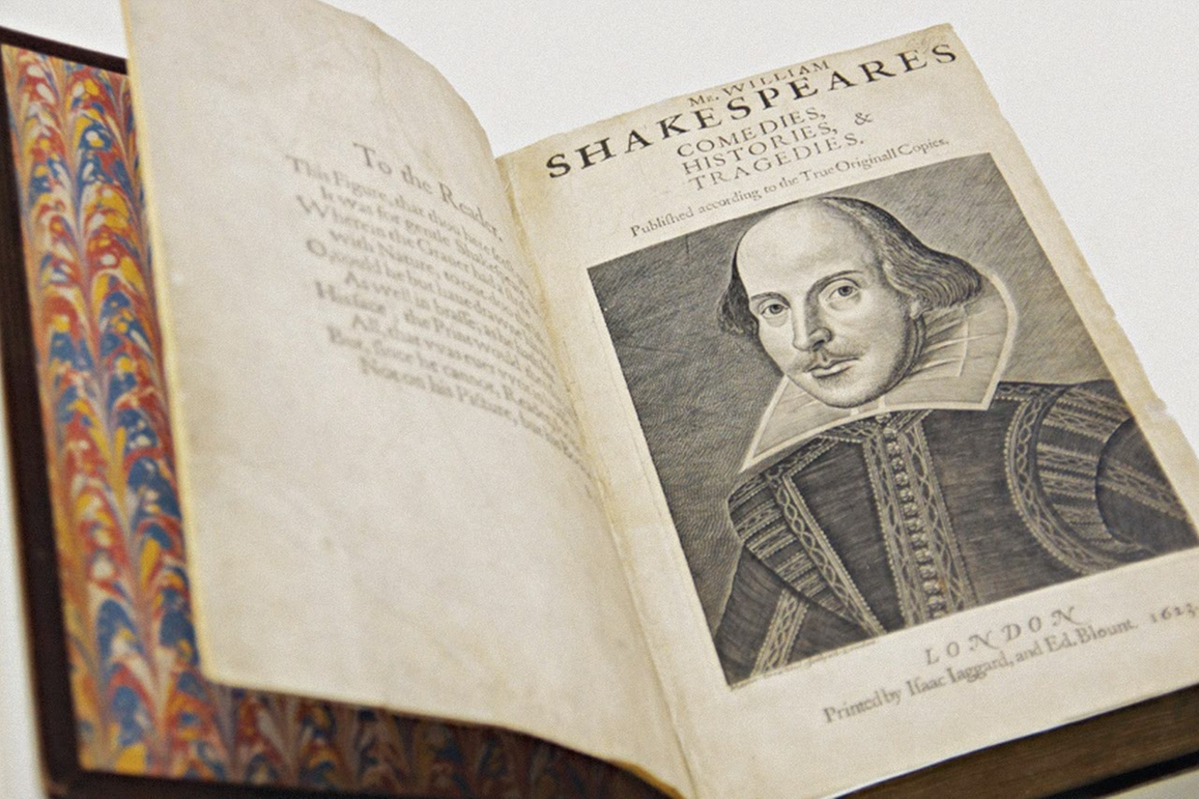
Why words written more than 400 years ago still echo today, Julian Shea reports in London.
At first glance, the words alligator, bedroom, eyeball, gossip, hurry, and kissing may not have anything obvious in common, but they do. William Shakespeare.
They are among up to 1,700 words whose first recorded use is in the collected works of the most important writer in the history of the English language.
More than four centuries after his death in 1616 at the age of 51, Shakespeare's plays remain a source of artistic inspiration far beyond the land of his birth, endlessly performed, studied, and adapted for innumerable languages and audiences.
From Disney's The Lion King to Feng Xiaogang's 2006 film The Banquet, Hamlet, the story of a young man confronted by the challenge of growing up to avenge his murdered father, is one of his most famous works.
The forbidden love of Romeo and Juliet has been the inspiration for everything from Oscar-winning musical West Side Story to Chloe Gong's novel series These Violent Delights, and Macbeth, with its tale of a man destined for greatness ruined by ambition, was reworked as Li Jianwu's 1944 play, later filmed, Wang Deming, and classic 1957 Japanese film Throne of Blood.
Shakespeare's work remains at the heart of the study of English literature worldwide, and also provides the mainstay of the tourist industry in Stratford upon Avon, his birthplace in England's West Midlands, which is also home to the Royal Shakespeare Company theater.
But none of this would have happened without the publication of a book 400 years ago, seven years after his death, in which Shakespeare's works were collated.
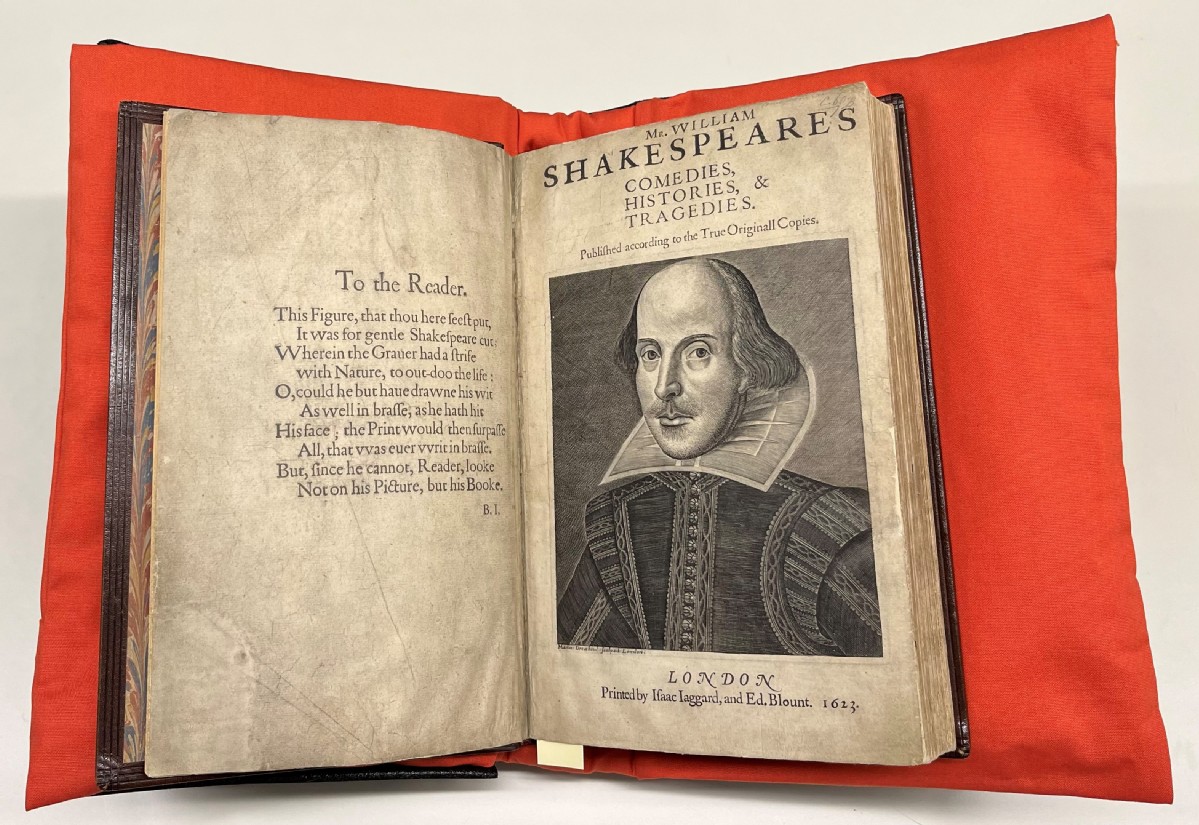
The First Folio, as it is known, was compiled by his friends John Heminge and Henry Condell and contains 37 plays. In the absence of any surviving definitive manuscript versions, it is as authoritative as any collection can be, so its 400th anniversary is being marked worldwide.
Although 750 copies of the 908-page book were printed, only around 250 still exist, with 90 in one place, at the Folger Shakespeare Library in the United States, and a small number are in private ownership.
Significant collection
One of the best condition surviving copies, formerly owned by William Petty Fitzmaurice, an 18th century British prime minister, belongs to the City of London Corporation, and is on display in the Guildhall Museum.
"As far as I'm aware, this is the best condition copy — I'm sure there are others lying around but as far as something authenticated, and in the best possible condition, goes, this is the one we have," Munsur Ali, chair of the City of London Corporation's culture, heritage and libraries committee, told China Daily.
"This collection is hugely significant — Shakespeare is a celebrated artist because we know of his work. Had this folio not survived, we would not be able to celebrate the leading writer in British history.
"If you compare this to biblical terms, this volume is something of a similar nature in the literature world. You can trace all writings inspired by Shakespeare back to this folio."
In addition to the folio, the Guildhall Museum is currently displaying one of only six authenticated examples of Shakespeare's signature, usually kept in the London Metropolitan Archive, and Ali said he hoped the display would encourage people to discover what the Guildhall gallery had to offer.
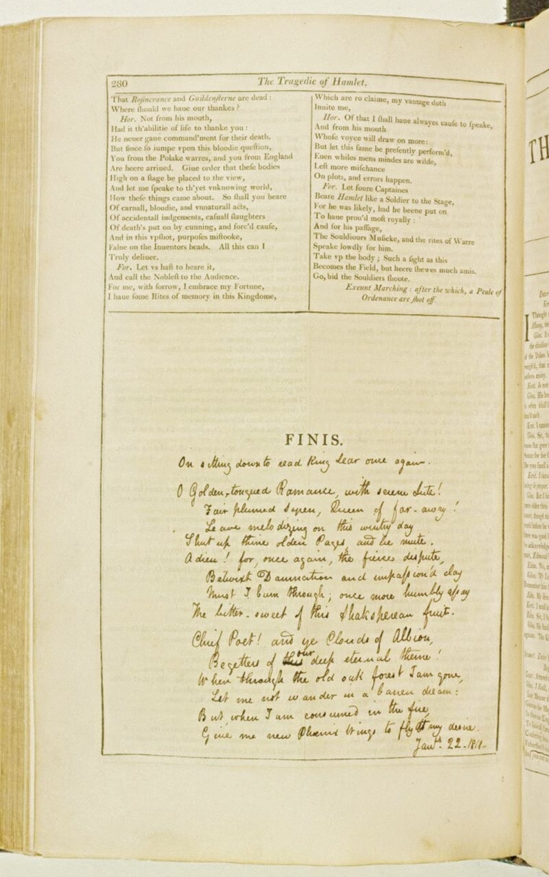
"The City of London is well known for its financial institutions, but we have a lot of cultural offerings too, so I'm very keen that we make sure we make them available to all. I'm keen to promote this to young writers, and that the international community recognizes the value of this folio and the other items we have."
Liz Schafer is a professor of drama and theater studies at Royal Holloway, University of London, who has written extensively about theater in Shakespeare's era.
"In the time he was writing, there wasn't a culture of publishing plays in the same way there was of publishing poetry," she told China Daily. "When, in 1616, his contemporary Ben Johnson published a folio of his own work, he was mocked, but if he hadn't done that, there would be no First Folio and a whole load of Shakespeare plays would have been lost."
Schaefer thinks it is plausible Shakespeare's widow, Anne, who died shortly before the folio was published, was involved in its compilation, and says one of its great values is that it shows how some texts changed over the years, from earlier versions known as quartos, a type of pamphlet.
"Some texts, like King Lear, are slightly different, but others like The Merry Wives of Windsor are radically different, which shows that in his time, scripts were dynamic, not settled. They were a blueprint for changing performance.
"Adaptation happened all the time, so when people start doing offbeat or alternative productions these days, that is something that has been happening since the start."
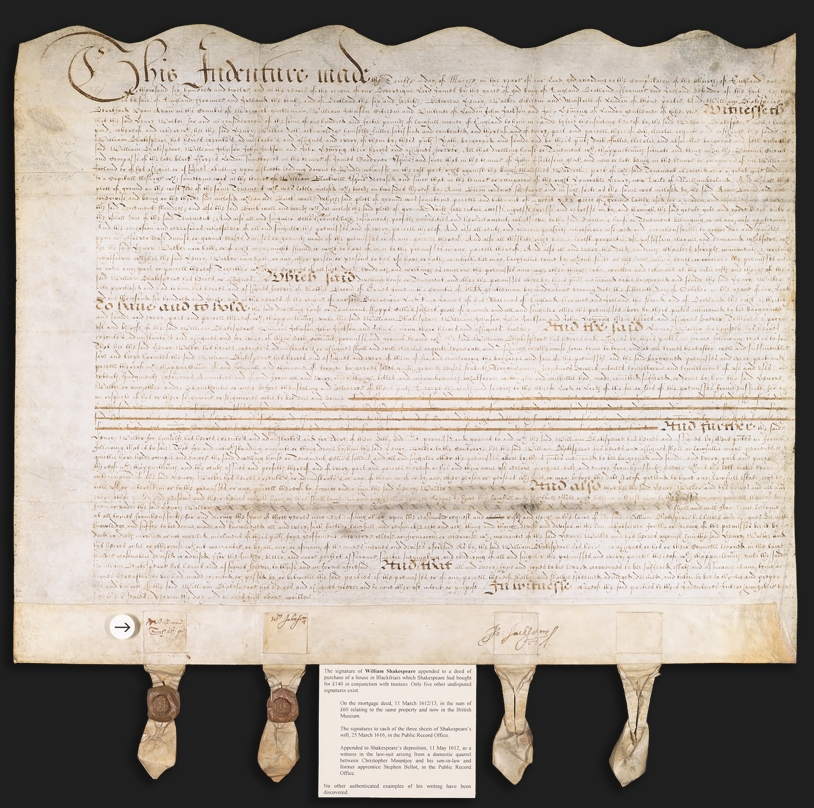
Another reason for Shakespeare's enduring success is his ability to spot a good storyline.
"An enormous number of his plays have many sources — he looks at the big issues in life, love, death, war, those sort of things — and he was good at identifying a terrific story, which is why his plays shift across cultures and times so well."
Universal themes
Although Shakespeare was born and raised in Stratford, he made his name as a playwright, actor, and producer at the Globe Theater in Southwark, south London.
The original Globe is long gone but a replica has been built close to the site, to give modern-day audiences as authentic a taste as possible of what theater was like in Shakespeare's time.
Gyuri Sarossy is an English actor who has played several Shakespearian roles, including for the Royal Shakespeare Company and at Shakespeare's Globe.
He told China Daily performing Shakespeare can be exhausting, but also exhilarating.
"The big roles can be draining, they take it out of you, but in the most adrenalized way," he said. "I know actors and directors who, when they do a Shakespeare play, will scour libraries to read about every version that has been done before, to make sure they don't do it that same way. But for me, it doesn't help to burden yourself with too much of that — you have to do it your way, and allow the part to speak to you.
"The reason the plays are done over and again, and they never get old — this might sound pretentious, but you let the role play you, you channel it through your personality. You're a different person to the last person to play it, so I don't burden myself with that, it's all about the language."

Shakespeare died in April 1616, the same year as the great Chinese playwright Tang Xianzu, who has been referred to the Shakespeare of the East, in tribute to the importance of the canon of his works.
In April 2017, a statue of the two writers, donated by the people of Fuzhou, Jiangxi province, the hometown of Tang, was unveiled in the garden of Shakespeare's birthplace in the town of Stratford upon Avon. And in 2019, the Peony Pavilion, named after Tang's famous play, was opened and described by Stratford Mayor John Bicknell as a "magnificent gift… and a great tribute to the cultural links between this town and the city of Fuzhou".
As part of the Cultural Olympiad alongside the London 2012 Olympic Games, theater companies from all over the world came to the Globe to perform Shakespeare's plays in their own language.
The National Theater of China performed Richard III in Mandarin, and Sarossy said it was no surprise how universally translatable across time and continents Shakespeare's work continues to be.
"The themes he discusses can absolutely fit into different cultures — it's to do with power, ambition, sex, love, government, politics, class," he said. "People obsess about how to put a play on, and you can hang different cultural settings on them in terms of the design, but the play still lives, and if you honor what's in it, it can still live. I think that's true across any culture or society — I think it's universal."
From the Globe in the 17th century, to across the globe in the 21st century, Shakespeare continues to be entertaining, inspiring, and relevant — and much of that is down to the First Folio.
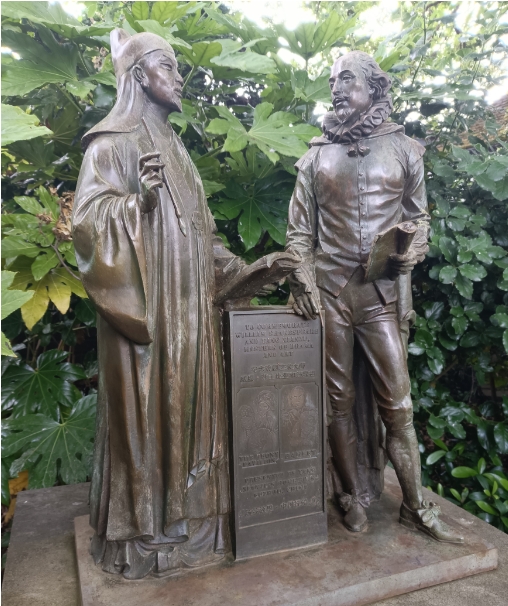
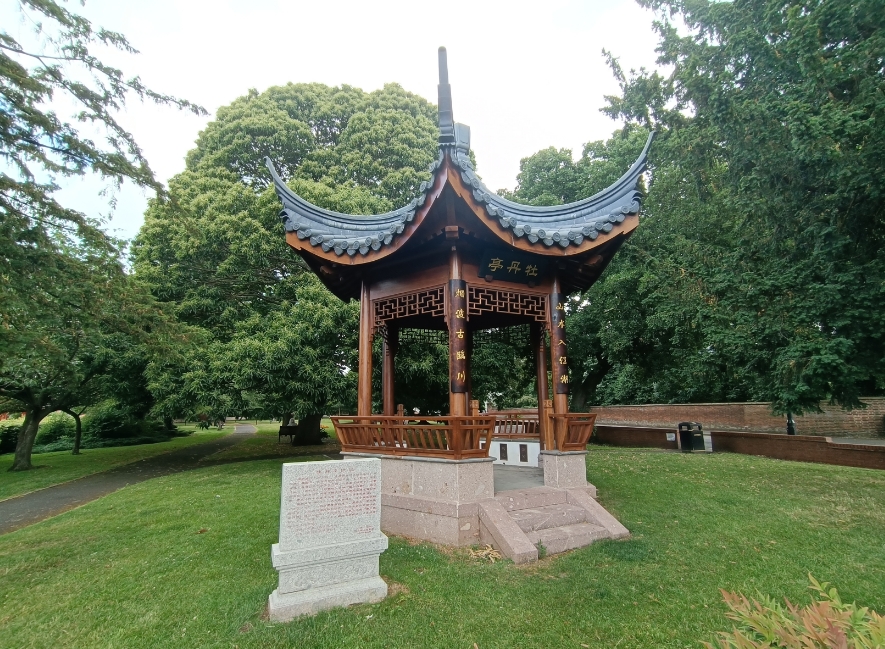
Contact the writer at julian@mail.chinadailyuk.com























